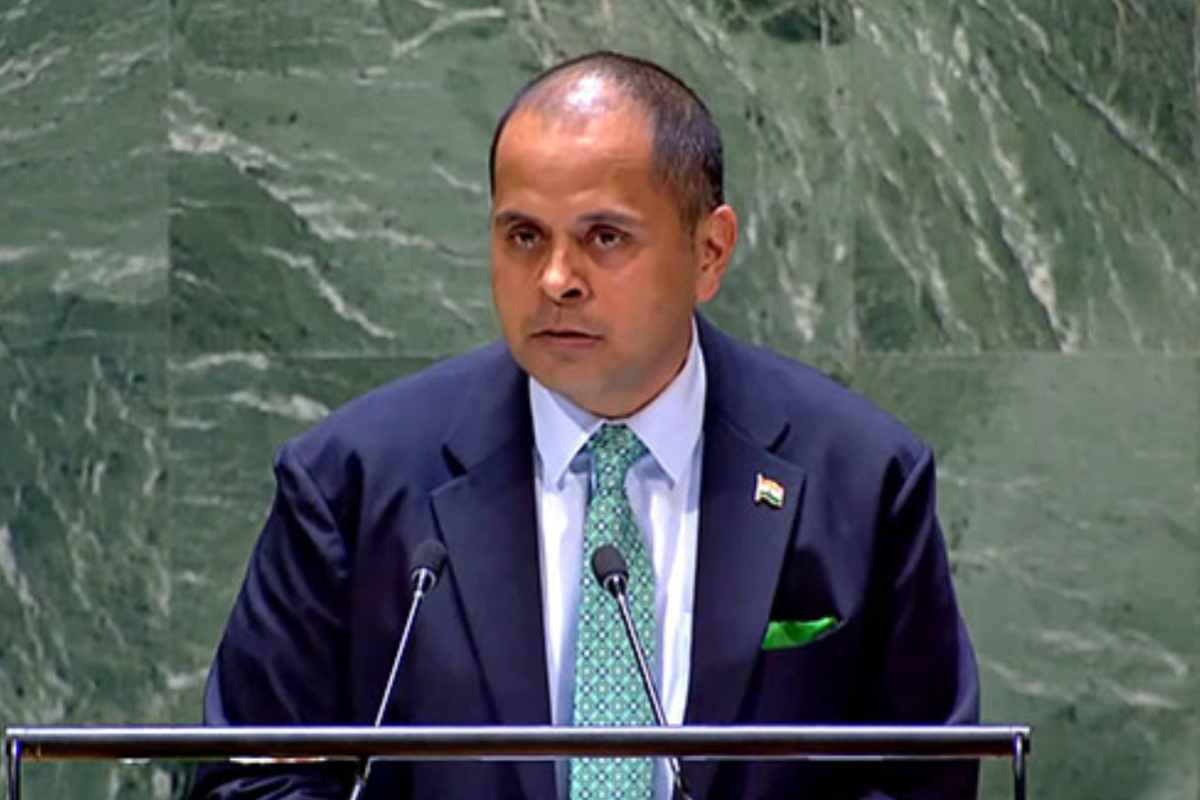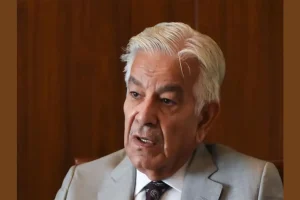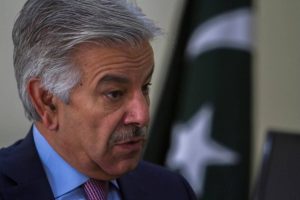India has slammed Pakistan for its “baseless and deceitful narratives,” after Islamabad’s envoy Munir Akram made references to Kashmir in his speech at the UN General Assembly.
While delivering a statement at the UNGA debate on the annual report, Pratik Mathur, the Minister at India’s Permanent Mission to the United Nations, said that one delegation “misused” this forum to spread “deceitful and baseless” narratives.
Mathur said, “Earlier in the day, one delegation misused this forum to spread baseless and deceitful narratives, which is not a surprise. I will not dignify these remarks with any response just to save valuable time of this august body.”
His remarks came after Pakistan’s Ambassador to the UN during the debate at the UN General Assembly called for monitoring the implementation of resolutions, including those on Palestine and Jammu and Kashmir.
Pakistan regularly brings up the Jammu and Kashmir issue at UN platforms and other some international forums, irrespective of the agenda of the meetings.
India has repeatedly rejected Pakistan’s attempts to raise the Kashmir issue on international platforms, asserting that the union territories of Jammu and Kashmir as well as Ladakh are “integral parts of India” and Pakistan has no “locus standi” to make statements regarding India’s domestic matters.
During the UNGA debate, Pratik Mathur on Tuesday stressed the need for a comprehensive reform of the Security Council with expansion of both permanent and non-permanent members.
“We welcome the opportunity to participate in the debate on the Report of the Security Council. We thank the members of the Security Council and the Secretariat for producing the annual report of the Security Council.,” Mathur said.
“India also joins others in congratulating new incoming members for having been elected to the Council for the period 2025-2026. We look forward to working with them in a constructive and positive manner,” he added.
The Indian diplomat pointed out that the UN Charter bestows on the report a profound seriousness, as is evident from the fact that there exists a separate provision mandating such a report, rather than clubbing it with the provision for reports from other UN bodies.
“The annual report of the Security Council must inform, highlight and analyse the measures that it has decided upon or taken to maintain international peace and security during the reporting period,” the Indian diplomat said.
“However, the debate on the annual report has become a ritual without much substance. The annual reports have become compendium containing details of the meetings, briefers, and outcome documents. Last year, only six monthly reports were compiled-reflecting lack of interest among the members about this ritual.,” he further said.
Mathur also stated that the annual report is also meant to be an analysis on the UN peacekeeping operations, but in reality there is little information on how peacekeeping operations.He also said there should be a definite timeline for completing the report, circulating to wider General Assembly members and holding the debate.
“The annual report, in its truest form, is also meant to be an analysis on the UN peacekeeping operations, the flagship tool for the maintenance of international peace and security. However, in reality, we find there is little information on how peacekeeping operations are run, on the problems they face, on why certain mandates are set or changed, or on when and why they are strengthened, scaled down or ended. As most peacekeepers are contributed by non-Council members, who put the lives of their troops at risk to serve the cause of international peace, a better partnership between the Security Council and the Troop Contributing Countries (TCCs) is needed,” Mathur said.
Mathur stressed the need to bring the Council in line with its Charter responsibility to act on behalf of the entire membership, adding that the only remedy is a “comprehensive reform of the Security Council,” involving expansion in its permanent and non-permanent categories.
“It is high time to bring the Council in line with its Charter responsibility to act on behalf of the entire Membership. This will not be achieved without enhancing the membership in both the categories — permanent and non-permanent members,” Mathur said.
“We remain convinced that the only remedy is a comprehensive reform of the Security Council, involving expansion in its permanent and non-permanent categories. Only this will enable the Council to manage effectively today’s conflicts around the globe as well as the increasingly complex and interconnected global challenges it faces today,” he added.
He further added that the Security Council too needs to prove its credibility and improve its performance, at a time when performance assessment has become one of the focus areas at the United Nations.





